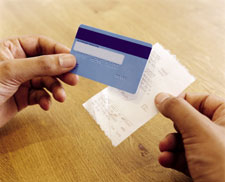23% of Online Fraud is “Friendly”
 Friendly fraud occurs when a customer makes an online purchase with a credit card and then, once the merchandise has arrived, calls the credit card company, claims never to have received the item, and requests a chargeback. The merchant has no way of proving the legitimacy of this card-not-present transaction, and is forced to refund the customer’s money.
Friendly fraud occurs when a customer makes an online purchase with a credit card and then, once the merchandise has arrived, calls the credit card company, claims never to have received the item, and requests a chargeback. The merchant has no way of proving the legitimacy of this card-not-present transaction, and is forced to refund the customer’s money.
According to a new study released by LexisNexis Risk Solutions, retailers lost more than $139 billion to fraud last year, with friendly fraud accounting for one fifth of those losses.
The problem for you, the consumer, is that banks and merchants tend not to believe identity theft victims, because friendly fraud complicates the reimbursement process. It’s not uncommon for victims to be required to sign affidavits and have them notarized.
Online merchants need a better system. Device reputation offered by anti-fraud experts iovation, would be one step in the right direction. While a customer is placing an order, device identification technology recognizes and re-recognizes PCs, smartphones, or tablets used to access online businesses across the Internet. Then, device reputation technology determines whether or not device the being used has a history of fraud (including histories of friendly fraud) or if high risk is assessed at transaction time. When a particular transaction is reported as fraudulent, that information goes into a globally shared knowledge base and the fraudster’s device and its related accounts are flagged in order to prevent repeated attempts under new identities. This protects the merchant and honest consumers from billions of dollars in losses to fraud.
Robert Siciliano, personal security and identity theft expert contributor to iovation, discusses identity theft in front of the National Speakers Association. (Disclosures)


























